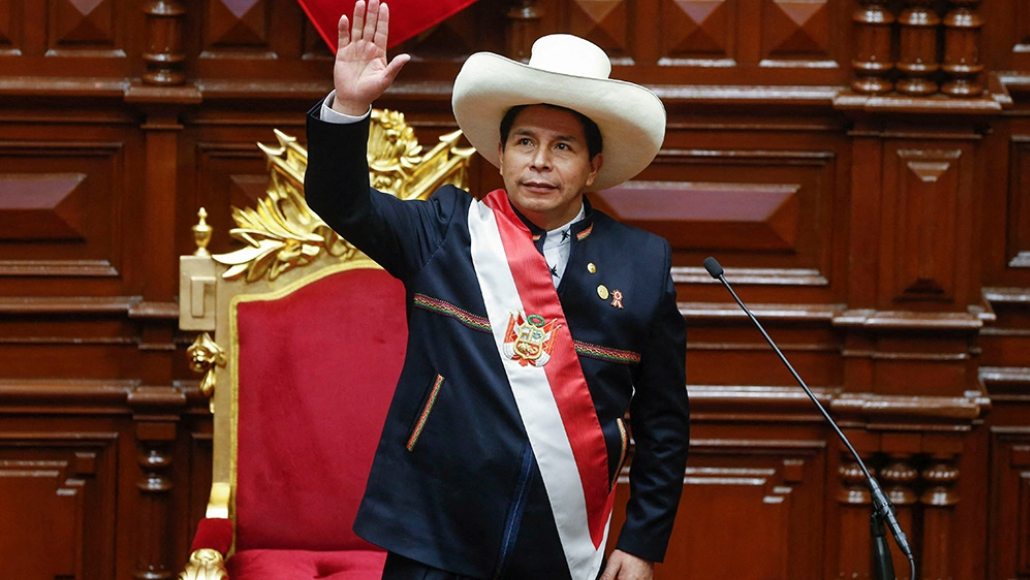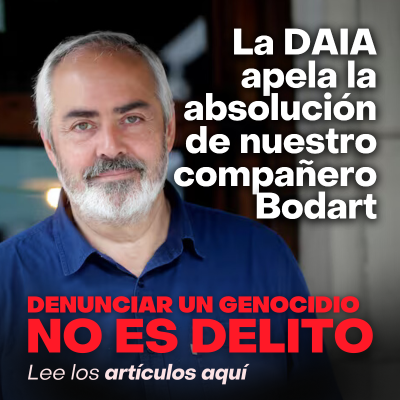Por Alberto Giovanelli
LOS NUEVOS DESAFIOS EN EL BICENTENARIO
Pedro Castillo asumió el 28 de julio el cargo de presidente de la República, rodeado casi todos los presidentes de América Latina y hasta por el rey de España.
Luego de numerosas dilaciones tras ganar la segunda vuelta electoral, el nuevo presidente finalmente toma el cargo en medio de las conmemoraciones del Bicentenario de la Independencia del Perú, y de una crisis sanitaria, económica e institucional que azota al país desde el primer trimestre de 2017 y se ha acelerado a causa de la pandemia por COVID-19, como ya hemos detallado en artículos anteriores.
Castillo, quien ganó los comicios por poco más de 44.000 votos, tuvo que esperar más de un mes antes de ser proclamado oficialmente como el próximo mandatario de Perú luego de que su rival, Keiko Fujimori, lo acusara de fraude electoral y lo desafiara ante la justicia.
Castillo enfrentará grandes retos de manera inmediata en temas institucionales, de salud y económicos. Para ello tendrá que lidiar con una mayoría claramente opositora en el Congreso, que seguramente amenace con obstruir su gestión y extorsionar y buscar razones para provocar su vacancia (renuncia).
Durante todas estas semanas Castillo ha salido a tratar de calmar las aguas y tranquilizar a los factores de poder tradicionales que siempre han gobernado el país, en medio de un clima de incertidumbre sobre el rumbo que seguirá la economía peruana bajo su mandato.
Entre esos anuncios «tranquilizadores» se destacan dos: primero el nombramiento de Pedro Francke como Ministro de Economía, un hombre que goza de “respeto y valoración” en el ambiente empresarial; segundo, el pedido a Julio Velaverde, presidente del directorio del Banco Central, a que siga a la cabeza de la institución, como en los últimos 15 años, para «garantizar su independencia».
Con este panorama, el presidente Pedro Castillo inicia su gobierno colmado de controversias y discrepancias dentro y fuera de su movimiento político, y ante un Congreso dominado por la oposición y altamente fragmentado. Ya recibe críticas por la conformación de su gabinete, sobre todo por la designación de Guido Bellido, proveniente del partido Perú Libre, como Jefe de Ministros. Este nombramiento retrasó la asunción de Frencke por ejemplo, lo que ya refleja ya las tensiones internas con las que se debatirá el nuevo gobierno.
Ambas situaciones podrían entorpecer sus principales promesas de campaña, comenzando por la que encabeza su lista de trabajo: el impulso de una Asamblea Constituyente.
En un país donde tres de cada 10 personas viven en la pobreza y más del 70% de los trabajadores pertenecen al mercado informal, los cambios que se esperan no pueden dilatarse sin que el nuevo gobierno enfrente rápidamente las movilizaciones populares que exigirán que se cumplan las promesas de campaña. Por eso es muy importante la ratificación de el llamado a Asamblea Constituyente que hizo Castillo durante su primer discurso, y tratar de ponerle fin de una vez a la Constitución Fujimorista del 93, ese corset institucional que funciona como reaseguro de que todos los cambios posibles sean sólo cosméticos y ninguno sea de fondo, como exige la situación de los trabajadores del campo y la ciudad.
Contradictoriamente, la expresión de «nueva economía popular de mercado», a la que hizo numerosas referencias Frencke, parecería ser una forma de tranquilizar a los sectores del poder concentrado y el imperialismo, y podríamos avanzar en definirla como una mezcla de las experiencias de los gobiernos de Rafael Correa en Ecuador y Evo Morales en Bolivia, pero en una situación mundial absolutamente distinta a la que imperaba cuando ellos gobernaron.
Hoy el agotamiento estructural del capitalismo en su expresión mundial y su manifestación regional, como hemos podido apreciar últimamente en las masivas movilizaciones en Chile, Ecuador, Colombia, Haití ó el propio Perú, en las que el denominador común es el rechazo a las políticas de ajuste, no deja margen para cambios aparentes ni negociaciones beneficiosas tanto para las burguesías locales como a los pueblos que buscan sobrevivir a esa crisis.
Así Castillo, que como ya hemos dicho, sostiene posiciones absolutamente retrógradas en cuestiones de género, aborto y reivindicaciones sociales, a las que ahora sumamos el anuncio de persecución a los extranjeros detrás del vago anuncio de «expulsar en 72 hs a los delincuentes provenientes de otros países», también en los últimos días ha llamado al «dialogo y la unidad nacional» a los partidos que lo enfrentaron durante las elecciones, corriendo el riesgo de asumir un rumbo que lo llevará casi inevitablemente a enfrentar a su propia base electoral que lo eligió justamente para hacer lo contrario.
El gobierno se enfrentará a una disyuntiva de hierro: se apoyará en la movilización de su propia base electoral ó claudicará frente a los partidos y personalidades agentes de la burguesía y el imperialismo, que como «colaboradores» del nuevo gobierno tratarán de neutralizar la voluntad de cambio que se expresó en la calles y en las urnas.
Desde la LIS (Liga Internacional Socialista) abonamos la unidad para que no se detengan las exigencias de quienes nunca gobernaron y alentaremos el surgimiento de nuevas organizaciones anticapitalistas que impongan en la calle el rumbo inevitable que habrá de tomarse para responder a las demandas de los trabajadores peruanos del campo y la ciudad.





